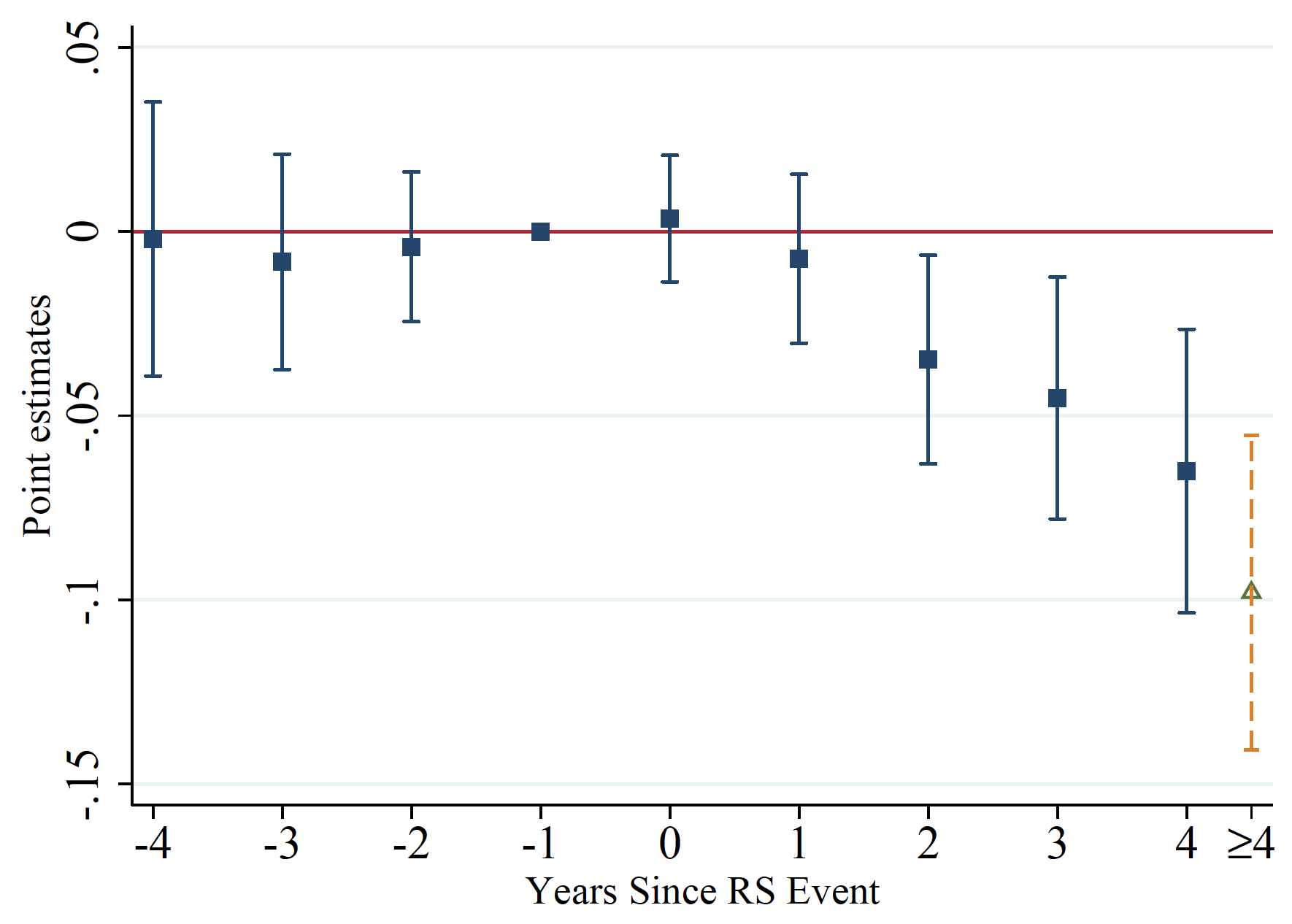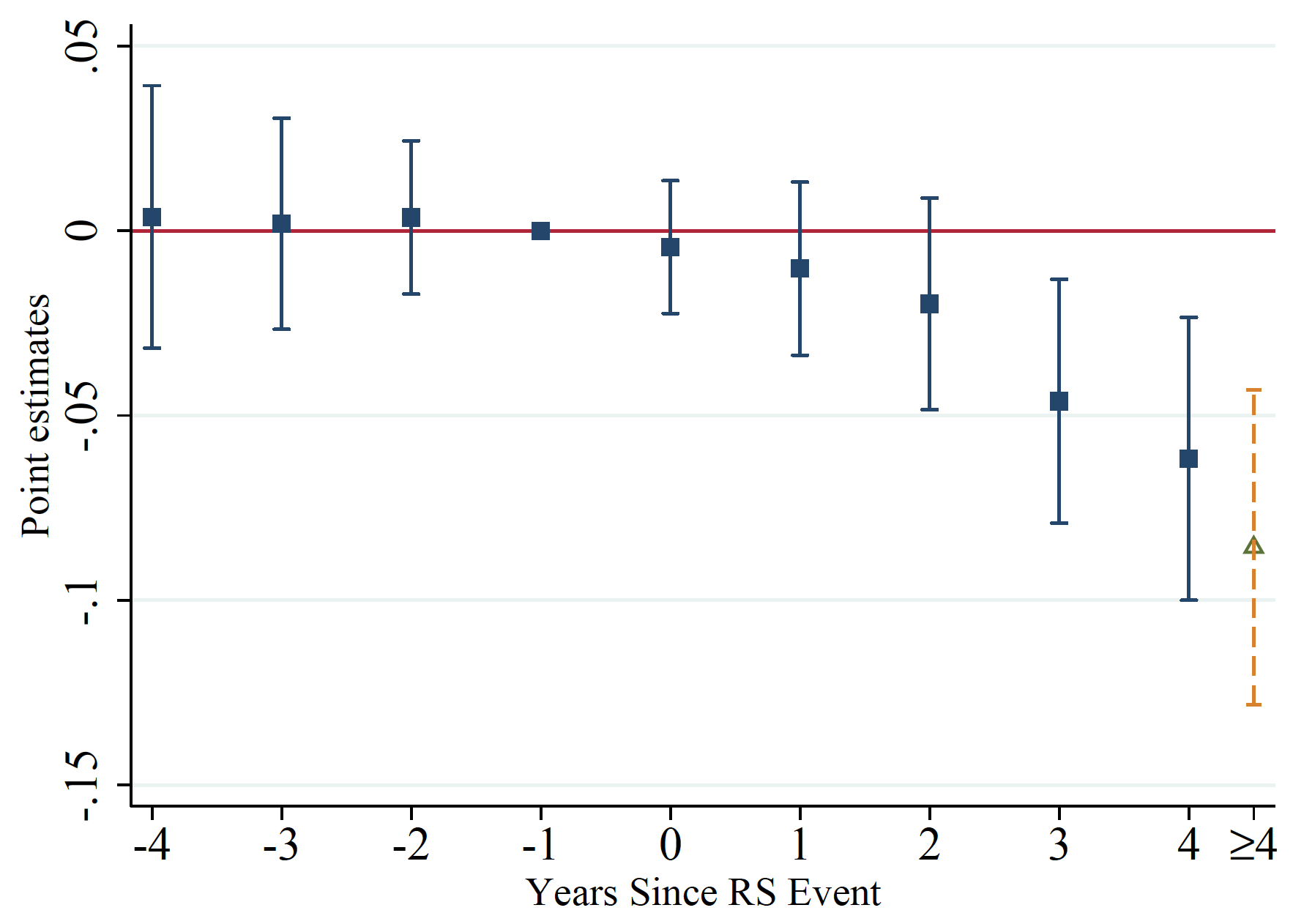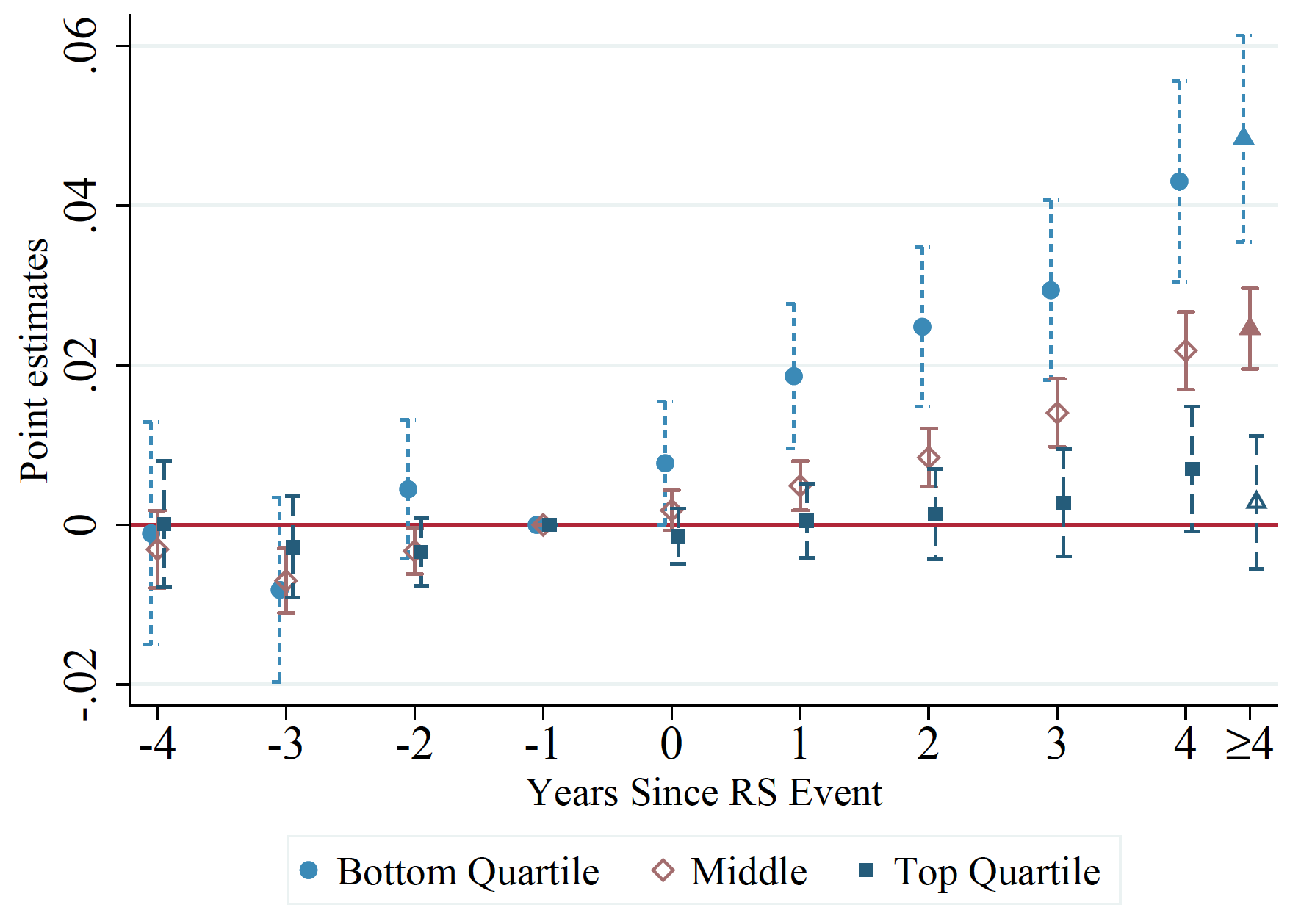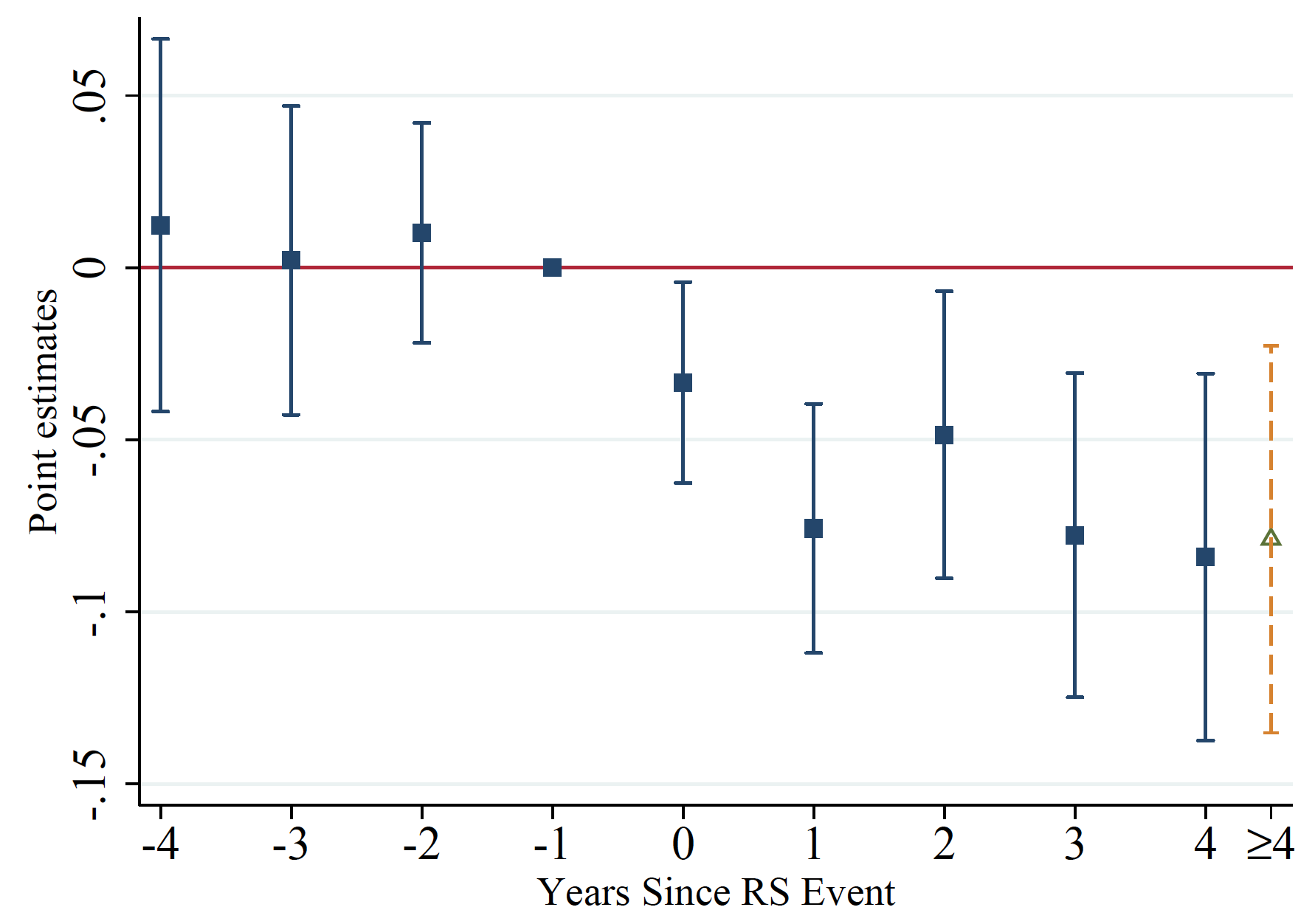
In theory, responsible sourcing has ambiguous effects on workers; empirically, exposed workers benefit but with adverse knock-on effects
Demands by policymakers and the general public for multinational enterprises (MNEs) to ‘clean up their supply chains’ and implement ‘responsible sourcing’ (RS) requirements for their suppliers in low- and middle-income countries, have become widespread in recent years (ILO, 2016). These RS policies typically take the form of ‘supplier codes of conduct’, whereby the suppliers of MNEs are expected to follow minimum standards on working conditions, such as wage floors, limits on hours worked, guaranteed benefits, or safety standards. MNEs privately enforce these new policies in several ways, most notably through third-party audits and turning the supplier codes of conduct into a contractual clause. MNEs also tend to engage their suppliers in capacity building for compliance (Boudreau, 2021). While the stated objective of these RS policies is to benefit workers in the low and middle-income countries where MNEs source, there is still relatively little theoretical and empirical work studying their actual effect and distributional consequences on the host country as a whole.
In Alfaro-Ureña et al. (2022), we study the impact of RS policies in the empirical context of Costa Rica, a middle-income country hosting hundreds of MNE subsidiaries across a wide range of economic activities, where RS policies have affected an increasing share of domestic producers. We investigate whether RS policies have impacts on the ground and, if they do, what these mean for firms and workers in the host country.
The effects of responsible sourcing on workers are a priori ambiguous
We first develop a theoretical model of RS to guide the analysis. We show that the overall effect of RS on the welfare of workers in the host country is ex-ante ambiguous. On the one hand, RS increases the payments to domestic factors of production embodied in exports, acting akin to an export tax that increases domestic welfare through a classic terms of trade effect. On the other hand, RS standards also affect production for the domestic market, acting akin to a labour market distortion that increases the domestic price index.
This interplay of forces also depends on alternative hypotheses about the motivation behind RS by MNEs, and the market environment in which RS is implemented. The impact on workers is, in theory, more beneficial when:
- more of the affected production is destined for exports
- the increased cost of suppliers’ production is passed through fully to MNE input costs.
- the demand for MNE output increases as a function of RS
- RS is accompanied by direct productivity gains due to transfers of technology or expertise by the MNE.
Responsible sourcing policies are not just ‘hot air’
To conduct the empirical analysis, we construct a new dataset of RS rollouts by MNEs with subsidiaries in Costa Rica. We combine these data with a combination of rich administrative data that allow us to track firms, their workers and firm-to-firm transactions before and after RS rollouts by MNE buyers over the period 2008-2019.
Using these data, we find that RS rollouts significantly reduce total firm sales and employment at exposed suppliers. Four years after the RS rollout, suppliers' sales and employment decline by roughly -7% and -6%, respectively (see Figures 1 and 2). These effects are concentrated among smaller suppliers in less regulated service sectors of the economy. The effects are also most pronounced when the RS policies are implemented by MNEs headquartered in countries with higher management scores and stricter labour regulations.
Figure 1 Effect on log supplier total sales

Figure 2 Effect on log supplier employment

Using worker-level data, we find a roughly 1.6% average increase in monthly earnings for workers in exposed firms. This effect is driven by workers in the bottom quartile of initial earnings, for whom we find an average increase of 4.5% four years after the RS rollout (see Figure 3). At the same time, the relative employment of initially low versus high-wage workers (bottom vs. top quartiles) decreases by about 8% over the same period (see Figure 4).
Figure 3 Effect on log monthly earnings by worker type

Figure 4 Effect on log relative employment of low versus high wage workers

Results using the firm-to-firm transaction data show that supplier sales to both non-RS buyers and sales to the RS-MNE decrease post-rollout. The decline in the sales to the RS-MNE manifests both on the intensive margin (for the suppliers who continue supplying the RS-MNE) and extensive margin (as some exposed suppliers decide to stop selling to the RS-MNE).
Responsible sourcing led to modest country-level gains paired with meaningful distributional effects
The empirical evidence, by design, is only able to capture the effects on exposed firms and workers relative to non-exposed ones. This evidence alone cannot quantify the overall effect on workers in the host economy. In this context, we document in the data that RS codes of conduct affect roughly 40% of domestic production in Costa Rica by the end of our sample in 2019, suggesting that overall labour and output markets are likely to be affected (not just individual suppliers and their workers). To make progress, we use the empirical evidence to calibrate the model and use the model to evaluate the economy-wide implications of MNE RS policies in Costa Rica over this period.
Combining our model with data, we find that RS policies in Costa Rica led to a positive albeit minor aggregate gain in worker welfare both among initially low- and high-wage workers. These aggregate effects mask meaningful differences in the gains across exposed and non-exposed workers. Low-wage workers employed at suppliers to RS-MNEs before the rollout (‘exposed workers’) experience real income gains of around 9%. Those gains, however, are accompanied by knock-on effects on labour demand for low-wage workers and domestic consumption prices that decrease the real incomes, by roughly -2%, of the remaining majority of low-wage workers who are not directly exposed to RS rollouts.
Conclusions
Our findings, both in the theory and the empirical analysis, highlight the need for caution when evaluating the implications of RS standards by MNEs. While these policies can lead to tangible benefits among the group of workers directly exposed to the MNEs’ standards, the recent increase in the scale of RS implementation (e.g. affecting close to 40% of domestic production in our setting) also warrants a careful analysis of the potentially unintended knock-on effects on overall labour and output markets, including effects on workers who may not be directly benefiting from better RS standards.
It is also important to highlight some of the limitations of our study. First, as our model highlights, the implications of RS on workers are context-specific. Second, Costa Rica is an upper-middle-income country compared to many poorer low-income countries where RS has also been implemented in recent years. The RS requirements that we study, both theoretically and empirically, in this context (improved compensation, benefits, working conditions) are likely distinct from other aspects of RS in low-income countries, such as child labour bans. In theory, it would be a very different counterfactual exercise to instead ban a certain type of employment (e.g. Faber et al. 2017). These and other important differences in the institutional and labour market environments call for additional research in this area, and naturally demand some caution when extrapolating findings from one study to other contexts.
References
Alfaro-Ureña, L, B Faber, C Gaubert, I Manelici and J P Vasquez (2022), “Responsible Sourcing? Theory and Evidence from Costa Rica”, Working Paper.
Boudreau, L (2021), “Multinational Enforcement of Labor Law: Experimental Evidence from Bangladesh's Apparel Sector”, Working Paper.
Faber, B, B Krause, and R Sanchez de la Sierra (2017), “Artisanal Mining, Livelihoods, and Child Labor in the Cobalt Supply Chain of the Democratic Republic of Congo”, Working paper.
ILO (2016), Decent Work in Supply Chains, Report IV.





